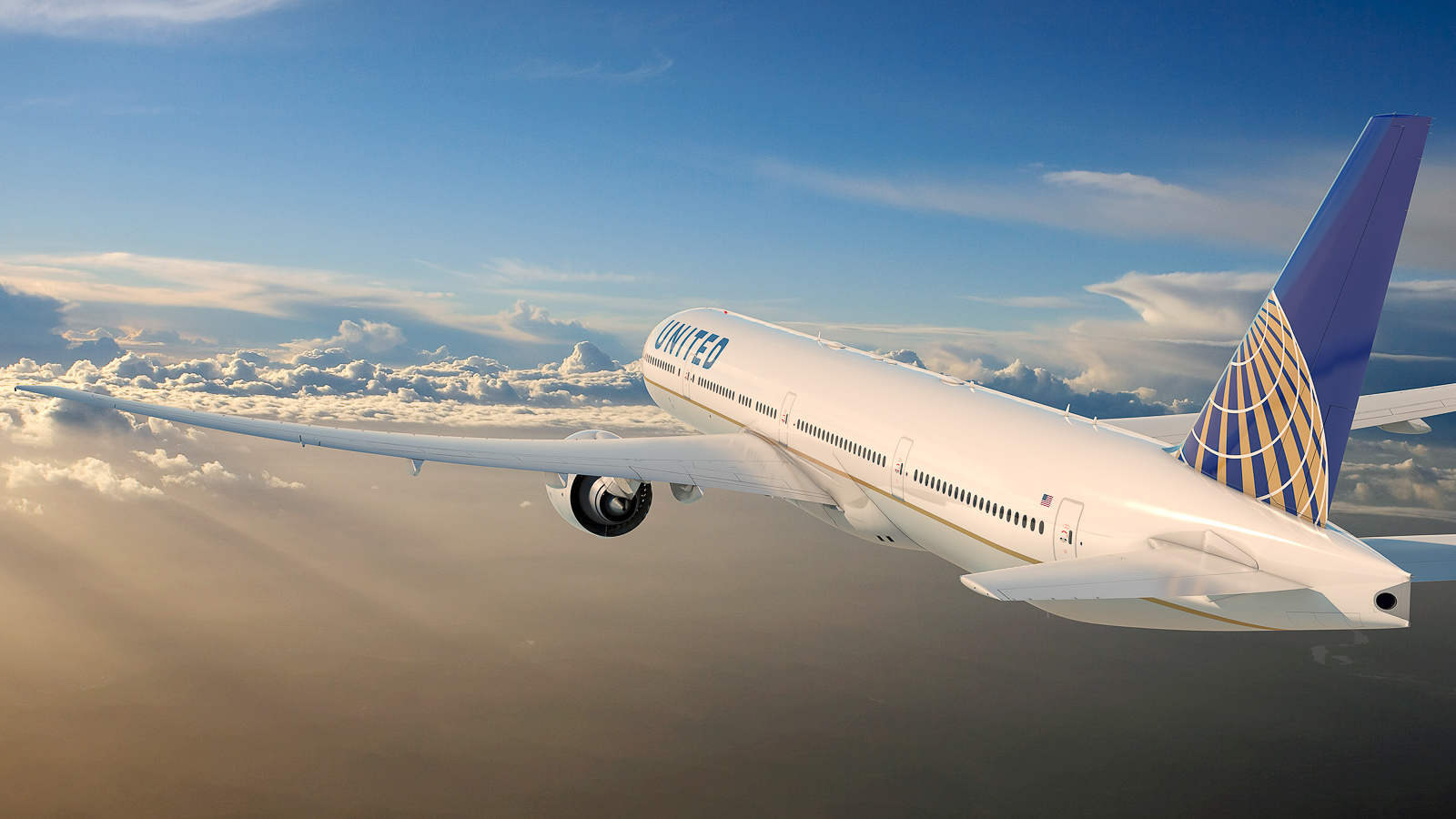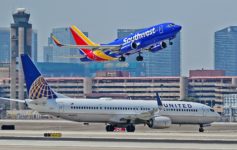Delta, United and American limit mileage earning on very expensive tickets, hotels stop giving incentives to stay more nights with them. Is this oversight, protection, or stupidity?
If you are considering booking travel or signing up for a new credit card please click here. Both support LiveAndLetsFly.com.
If you haven’t followed us on Facebook or Instagram, add us today.
Airlines Limit Mileage Earned Per Flight
When airlines made the switch years ago and a mile was no longer a mile, they had to create a new way to earn redeemable miles from flights. In the old system, if you flew one mile on American as a general member of the Advantage frequent flyer program, you’d earn one mile.
Simple.
Competition for higher fares, joint ventures, alliances and codeshares – everything changed and perhaps so too should mileage earning. It moved to 0.5 miles for the cheapest deals, and 2-3x miles flown for the most expensive fares.
When a mile is no longer a mile (but few are brave enough to just call them points) they all switched to the same earning chart. Commoners would earn 5 miles per dollar on most fares, with elites receiving bonuses all the way up to 11 miles per dollar spent for top tiers. Ok, some will win, some will lose, let’s see how it goes.
***One red herring*** No single ticket can earn more than 75,000 miles.
“Wait, what?”
So if a commoner wants to buy a $16,000 ticket or a top tier elite a $7,000 ticket the airline wants to limit how much they distribute in frequent flyer miles? How does that make any financial sense for the carrier to disincentivize the most expensive tickets?

Hotels Limit Rollover Nights
Hilton and IHG (though don’t use them unless you have to because IHG hates their elites) both offer rollover nights, something Hyatt and Marriott do not. I love rollover nights and think they engender loyalty not inhibit it.
One year I had a concurrent stay that lasted over 300 nights, it was essentially an apartment close to a job site and it didn’t make sense to check in and out. Hilton limits the number of rollover nights from any given year to 60, for what it’s worth IHG also imposes a limit (but who cares about them, they don’t care about us?)
For Hilton Diamonds that stay in Hilton hotels 120 nights in a single year, will continue to earn normally but won’t receive any additional rollover credit. One of the greatest strengths of the program is limited for those that will practically live in Hilton hotels.
Why should Hilton Diamonds or IHG (Downard) Spires stay with the brand once they have topped out? Why not switch to another brand at that point and begin to build a balance elsewhere? Why would Hilton want to give their most loyal, most prolific customers a reason to shop the competition?
One-Off Situations, not Loyalty
The airlines initially needed to create a top-end to protect themselves and shore up liability in the event of oversight as they switched systems. But I know travelers that are very loyal to airlines and fly last minute business class tickets. What incentive do they have if there is a particularly expensive ticket to stay with the airline, especially if they have already re-qualified for status?
One-off travel is not loyalty but that shouldn’t make it any different. I have asked before, why airlines should penalize high dollar spenders when they don’t fly enough miles ($20,000 EQD, 30,000 EQM) when they reward those who spend less ($15,000 EQD) but fly more miles (100,000.) The answer I get is that if a customer buys a couple of expensive tickets, that doesn’t make them a loyal flyer.
Fair enough.
Why not take off the restrictions once a frequent flyer hits EQM restrictions? In the case of hotels, I can understand that they may not want elites to take years off between qualifications simply because they had one year where they were particularly loyal. However, in my case, I have 100+ qualifying nights with Hilton this year, once I hit 120, I will start to put my stays at another chain. Why would Hilton want this?
Conclusion
I recognize that topping out on miles and rollover nights are, very much, first world problems. That being said, I find there are inconsistencies in how brands choose to reward, limit and penalize their members. This really hurts entrpreneurs and small business owners who are paying for last minute tickets out of pocket or the ultra loyal hotel guest.
What do you think? Should airlines award miles on a per dollar basis without limitation? What about hotels, does it discourage highly frequent guests continue staying with one brand?




Revenue based programs are now pretty much rewarding senior executives at large companies which for the most part have corporate accounts with an airline or hotel group. So why should these travel companies overly reward the personal benefits of these executives? Very few rich individuals buy these tickets for themselves or their families, and if they do they can well afford foregoing surplus miles/points. This piece is just another First World Problem affecting even less than the 1% who likely couldn’t give a damn themselves…when they even deign to fly commercial instead of by NetJets.
Who needs rollover nights with IHG when you can make top tier so easily via the 75k points requirement?
And excluding extremely long stays from the bonus-point program in one way or another makes good economic sense. When somebody stays for an extremely long time, the decision is done. You don’t need to incentivize that person. The person is not gonna make a hotel booking decision every week when it is staying at one property extremely long-term.
Loyalty programs are not about rewarding customers. They are about setting incentives which *change* people’s behavior.
I happen to think your right. The airline rule is flat out lunacy. If your going to reward spend then reward it. Capping the miles that can be earned on a single ticket only serves to hurt people spending the most money who happen to be the customers your supposed to value.
As for Hotels why create an incentive for someone to try another brand? It’s an old business axiom that you never want to let your customers sample the competition.
What this really gets to though is loyalty program design. You have loyalty programs for two reasons. First you want to give your best customers reasons to keep coming back and giving you their business. Second you want to drive marginal spend. If I have a choice between brands a good loyalty program will drive me to that brand because I’m chasing the rewards. Capping benefits fails both tests because not only are you giving your best customer a reason to walk your also disincentivising marginal spend that could have come your way.
Nearly all of the loyalty programs out there (airlines especially) seem to be going out of there way these days to destroy the incentive for someone to actually be loyal to them. Which means they are utterly failing and one of their prime purposes. Driving marginal spend.
Humorously, I haven’t actually encountered this limit, but when I took my new job, which involves a lot of international travel in paid business class and a lot of domestic first flying, I made a conscious decision to credit my Star miles (which is most of them, insomuch as I’m based in Denver) to LH’s Miles and More instead of MileagePlus.
I’ve already qualified for Senator and so I get UA lounge access domestically, which is a nice add, plus there’s no cap on earnings.
I probably won’t qualify for HON Circle because only about half of my earnings are on the required LH group airlines, but I find that UA treats me better as an LH elite that AA ever treated me as one of their own elites.
Its precisely the airline knows that you’re buying that last minute expensive ticket because you probably have no other option or choice, so they have no reason to incentivize you. The mileage earning cap protects them in that way. Its BS of course, but i understand the business side.
This cap affects me frequently, as I am often a buyer of last minute business class tickets and those are often have me hitting the cap (I’m an AA EXP). What it does is incentive me to fly Qatar over AA. I get a better in-flight experience, usually at a much lower cost, and still generally make out close what I would get on AA with the cap.